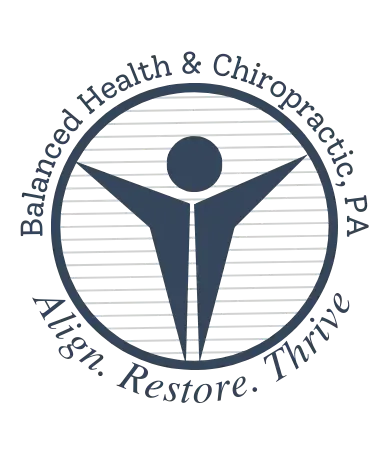
Signs of Perimenopause
Signs of Perimenopause + How Functional Medicine Can Help Ease the Transition
Menopause is the natural stage of life that begins once a woman has completed her childbearing years and her menstrual cycle has permanently ended. At this point, pregnancy is no longer possible, and birth control is no longer needed. But before you officially reach menopause, your body goes through a transitional phase called perimenopause. During this time, your hormones begin to shift, and subtle signs start to appear that menopause is approaching.
Understanding the signs of perimenopause can help you feel more prepared and empowered. This is also where a functional medicine approach becomes especially helpful. By identifying where your body needs support and addressing imbalances early, you can experience a smoother, more manageable journey through this hormonal shift.
One of the first ways perimenopause shows up is through physical changes. You may notice things like hot flashes, breast tenderness, or night sweats that seem to come out of nowhere. Some women experience urinary urgency, leakage, or even discomfort during sex. Vaginal dryness and a lower sex drive can also appear during this phase. Irregular periods are another hallmark sign, with cycles becoming longer, shorter, heavier, or lighter than usual. These shifts can be unsettling, but they are part of the body’s natural transition.
Mental and emotional changes are also common during perimenopause. Many women begin to experience fatigue that doesn't improve with rest, as well as brain fog and trouble concentrating. You might find that your anxiety increases or that your tolerance for stress feels lower than it used to be. Sleep often becomes more difficult, whether you're having trouble falling asleep or waking up throughout the night. Mood swings, irritability, and feeling overwhelmed can become more frequent. These symptoms are influenced by fluctuating hormone levels but can also be connected to changes in adrenal function, blood sugar stability, and neurotransmitter health.
While most women enter perimenopause in their 40s or 50s, some notice symptoms earlier. This can be related to genetics, especially if other women in your family experienced early menopause. It can also result from a hysterectomy, chemotherapy, or radiation treatments. Autoimmune conditions, high stress, and significant weight loss or gain can all influence when perimenopause begins. Early symptoms can be confusing and frustrating, but they are not uncommon.
This is where functional medicine can make a significant difference. Instead of only managing symptoms, functional medicine seeks to understand the root cause of what your body is going through. For example, if your adrenals are overworked, that stress can worsen hormone fluctuations. If your gut is not functioning properly, it may interfere with how your body processes and eliminates estrogen. Poor blood sugar regulation can contribute to mood swings, while nutrient deficiencies might be making fatigue and brain fog worse.
By supporting these foundational systems—your gut, adrenals, blood sugar, detox pathways, and nervous system—you give your body the help it needs to balance hormones naturally. Functional medicine uses tools like targeted lab work, nutritional support, lifestyle changes, and gentle supplementation to strengthen the body where it is struggling most.
Although perimenopause is a normal part of life, it’s important to recognize when symptoms go beyond what’s expected. If you are experiencing heavy bleeding with clots, bleeding between periods, severe pelvic pain, or extreme mood changes that disrupt your life, speak with your healthcare provider. These symptoms may require further evaluation.
You don’t have to go through perimenopause blindly or alone. With education, support, and the right strategies, this season can be one of healing, reflection, and renewed strength. Your body is shifting, but it’s also asking for your attention. When you give it the care it needs, you can move through this transition with greater ease and vitality.
Learn more about functional medicine at BalancedHealthKS.com/functionalmedicine
